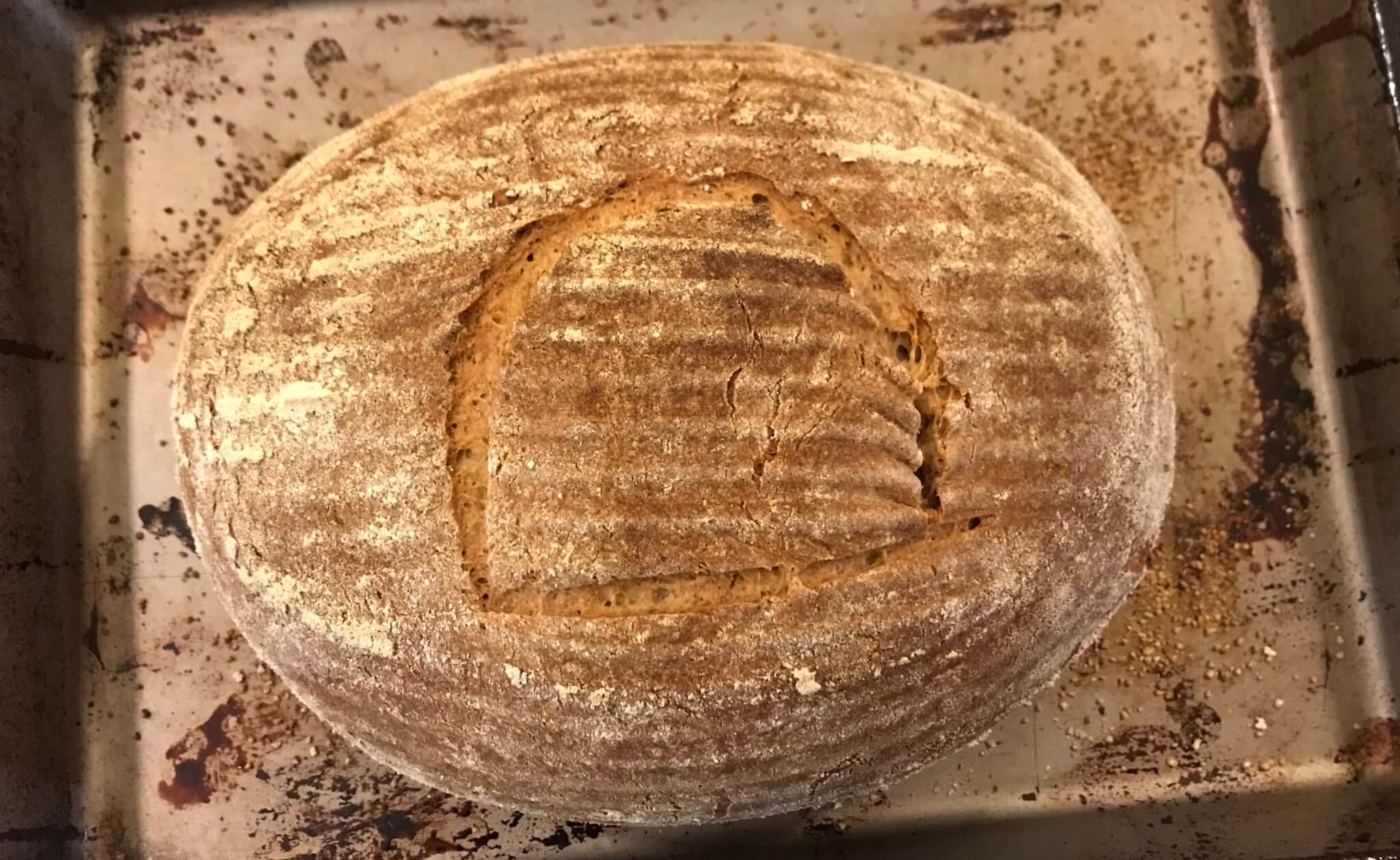Anthropology
Showing Original Post only (View all)Dig in! Archaeologists serve up ancient menus for modern tables [View all]
Dig in! Archaeologists serve up ancient menus for modern tables
James Tapper
Sun 11 Aug 2019 04.00 EDT

An ‘unbelievably sweet and rich’ sourdough loaf baked by Seamus Blackley and his team, made with yeast spores extracted from 4,500 Egyptian pots. Photograph: @SeamusBlackley
Porridge, loaves and sauces Egyptians and Romans consumed have become today’s cookbook craze
During a 1954 BBC documentary about Tollund Man, the mysterious body of a hanged man discovered in a peat bog in Denmark, the noted archaeologist Sir Mortimer Wheeler ate a reconstruction of the 2,000-year-old’s last meal. After tasting the porridge of barley, linseed and mustard seeds, he dabbed at his moustache and declared the mystery was solved: Tollund Man had killed himself rather than eat another spoonful.
Food reconstruction has come a long way since then. Last week Seamus Blackley, a scientist more famous for creating the Xbox, baked a sourdough loaf using yeast cultured from scrapings off 4,500-year-old Egyptian pottery at his home in California. The results, said one of his collaborators, Dr Serena Love, an Egyptologist from the University of Queensland, were “tangy and delicious”. “I met Seamus for the first time today,” she said. “As soon as I walked in the door he gave me a plate of bread.” Blackley extracted samples from inside the ceramic pores of a clay pot from the Peabody Museum at Harvard University three weeks ago. Most are being examined by the third member of the team, Richard Bowman, a molecular biologist, but Blackley kept one to turn it into yeast to make bread. “Food puts you in touch with the humanity of the past,” Love said. “That’s a tactile thing, something that’s visceral – you can actually experience the ancients, with at least one of the actual ingredients.”
They are not quite the first people to attempt to take yeast from ancient sources. In May a group of scientists in Israel brewed beer using yeast from wine and beer jugs found in archaeological digs. Another scientist, Raul Cano from California Polytechnic State University, extracted yeast from a bee trapped in amber 45m years ago, and eventually set up the Fossil Fuel Brewing Company to sell the results. You can also add to the list Carlsberg’s 1883, Dogfish Head’s Midas Touch and something called Tutankhamun Ale, brewed by Scottish and Newcastle in the 1990s from yeast collected by academics Barry Kemp and Delwen Samuel.
Ancient and historical foods are having a bit of a moment. The growing interest can be seen in the number of cookbooks available including An Early Meal, a Viking Age Cookbook by Daniel Serra and Hanna Tunberg and Khazana by Saliha Mahmood Ahmed with recipes inspired by the Mughal empire, as well as in the increasing number of food re-enactments. Graham Taylor’s Potted History firm makes amphoras and Neolithic pottery for experimental archaeologists such as Sally Grainger who has investigated and made versions of garum, a Roman fish sauce, as well as Jill Hatch who cooks authentic Roman food for the Ermine Street Guard enthusiasts and similar groups. But those looking for original ingredients to recreate tastes of the past need to be cautious, says Professor Dorian Fuller, an archaeobotanist from University College London. “Yeast is everywhere. It’s hard to know if something wasn’t contaminated when it was dug out of the ground, or when it was put on a ship to Boston collecting yeasts along the way. These things haven’t been kept in sterile conditions.”
More:
https://www.theguardian.com/science/2019/aug/11/ancient-menus-archaeology-modern-tastes